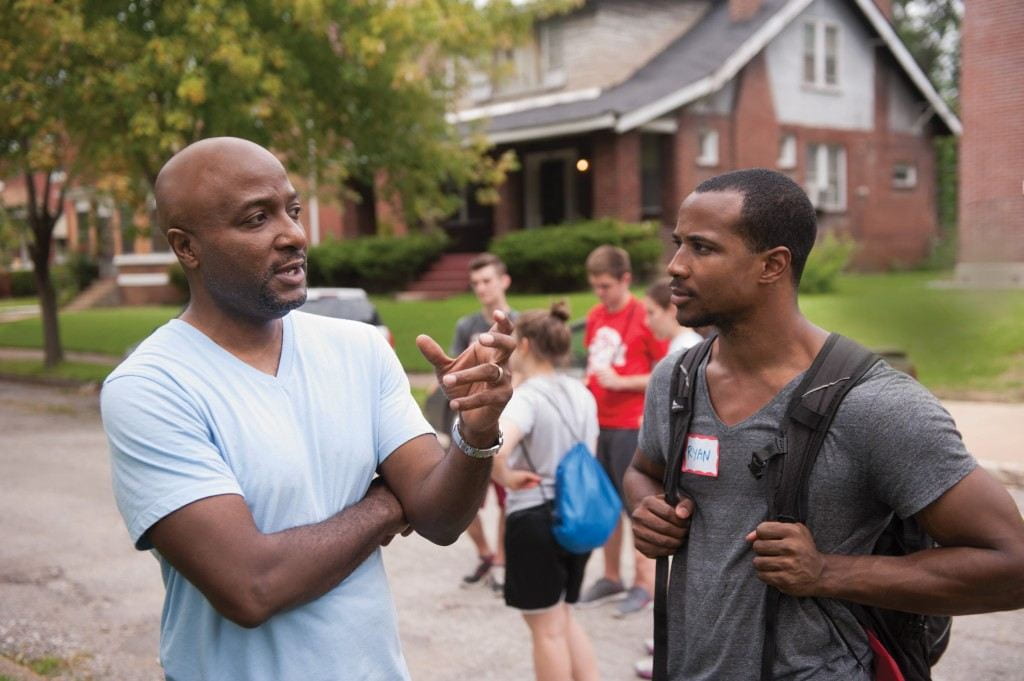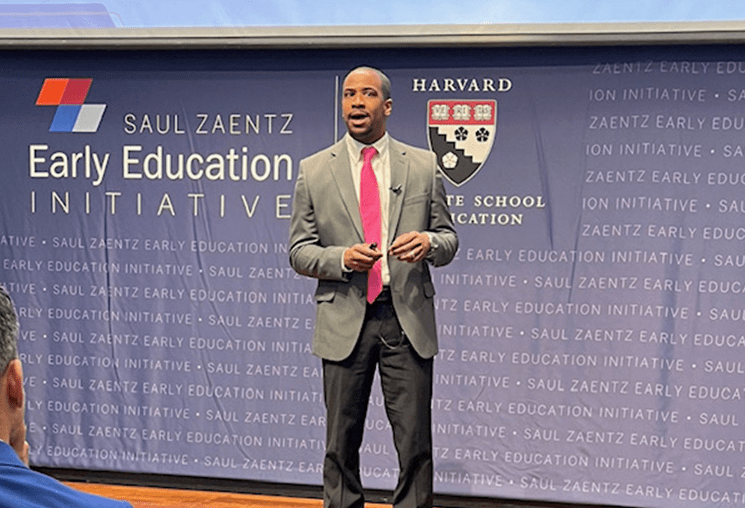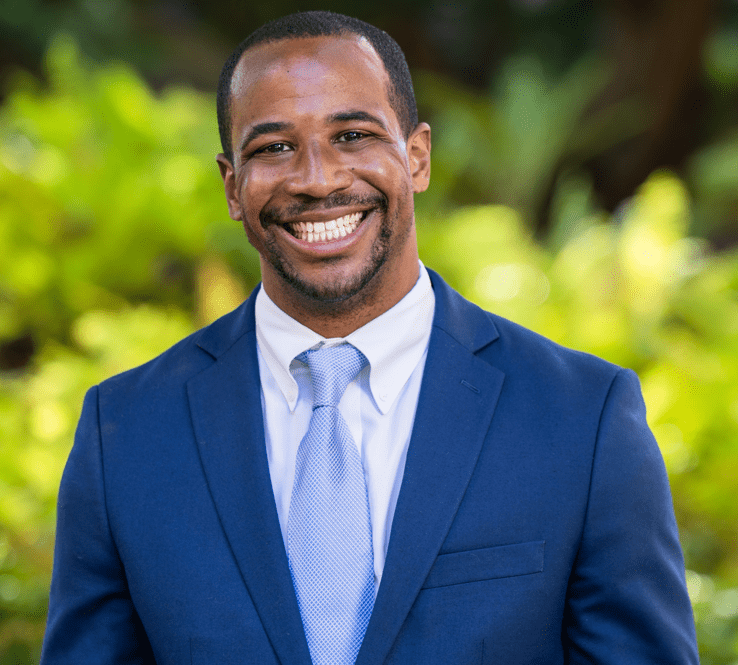
For Ryan Burton, working at the intersections of education, philanthropy, and community development helped land him a spot at Harvard.
Burton is a candidate in the Doctor of Education Leadership program, which utilizes a cohort model taught by faculty from three different Harvard schools and is designed for those pursuing vocations in systems-level leadership in education. His time at WashU—as an MSW student and as a Gephardt Institute Scholar—served as a cornerstone of these ambitions.
“Much of my work focuses on making educational philanthropy and nonprofit leadership more responsive to the needs of the communities they serve and those most vulnerable,” said Burton. “The Gephardt Institute helped cultivate that community-driven lens for me.”
During his time as a MSW student, Burton was actively engaged on the institute’s student staff as a Gephardt Scholar (now called Gephardt Fellow). His passion and skills in education were evident as a Goldman Fellows Program Coordinator and Graduate Advisor for immersive experiences, including a trip that explored poverty in St. Louis through the lens of its education systems. He also served as a leader for both Meet St. Louis and Identity Literacy, guiding first-year students through St. Louis excursions to Lewis Place and facilitating conversations on St. Louis history, race, and neighborhood-based community development.


Burton’s contributions to Gephardt extended to co-managing the Civic Engagement Fund, which he credits in helping him prepare for his first job working philanthropy and reviewing nonprofit grant proposals in his home state of Colorado.
Before beginning his doctoral program, Burton most recently served as a Program Director at an education nonprofit in Boston called Bottom Line, which supports first-generation students from low-income backgrounds get into college, graduate, and land their first professional destination after school. This aligns with Burton’s belief that “strong nonprofit organizations—which support youth during critical out-of-school-time hours or partner with schools during the day to supplement classroom learning—are uniquely positioned to address opportunity gaps in education, help close post-secondary attainment gaps, and facilitate positive community outcomes.”
Burton attributes his experience at the Gephardt Institute for fundamentally preparing him for his current work, by cultivating skills in active listening and a community-centered approach. Most recently, he applied these lessons during a class trip to Cuba to learn more about Afro-Cuban education and experiences.
“Gephardt’s programs emphasize the importance of educating oneself on the issues, active listening, and understanding the needs and desires of those most impacted by the challenges before springing into action,” he said. “And when one does act, it’s important to do it in partnership with the community—instead of to them. I’ve carried that approach into my career.”
Burton encourages WashU students to identify issues that are meaningful to them and find ways to plug in. He currently serves on the Gephardt Institute Alumni Council, a group of young alumni who participated in Gephardt programs during their time at WashU.
“I view civic engagement as a lifelong pursuit, and there are countless ways to remain engaged in social impact work across the nonprofit, public, and private sectors…It also doesn’t have to happen during one’s day-to-day job—it can come from volunteering as a mentor, consultant, or board member.”